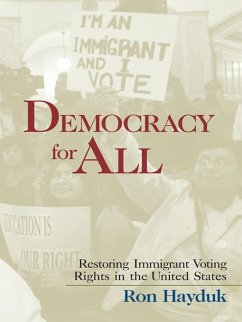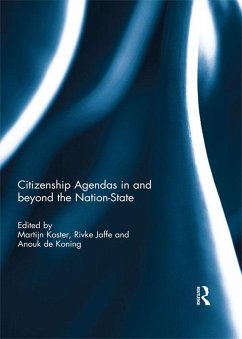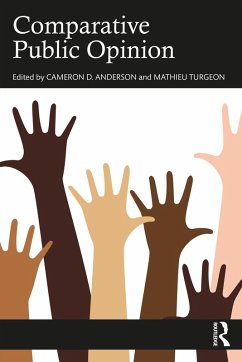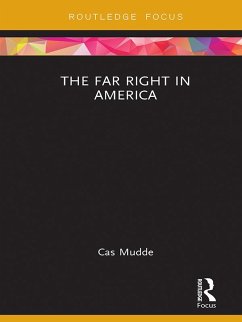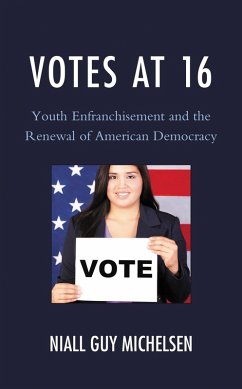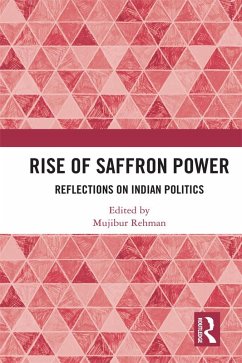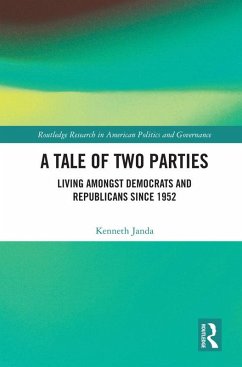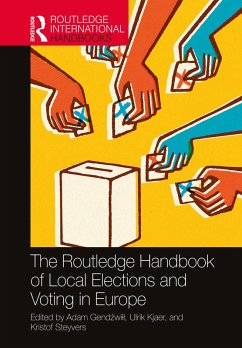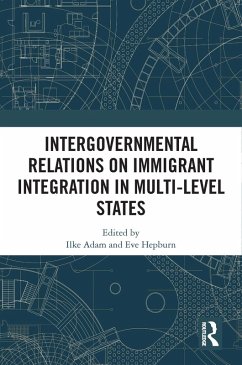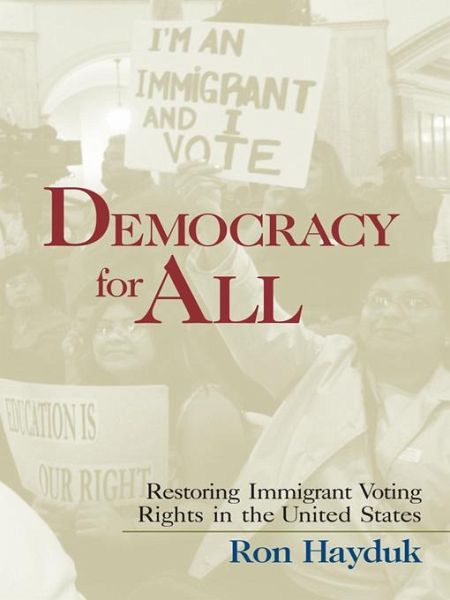
Democracy for All (eBook, ePUB)
Restoring Immigrant Voting Rights in the U.S.
Versandkostenfrei!
Sofort per Download lieferbar
61,95 €
inkl. MwSt.
Weitere Ausgaben:

PAYBACK Punkte
31 °P sammeln!
First published in 2006. Voting is for citizens only, right? Not exactly. It is not widely known that immigrants, or noncitizens, currently vote in local elections in over a half dozen cities and towns in the U.S.; nor that campaigns to expand the franchise to noncitizens have been launched in at least a dozen other jurisdictions from coast to coast over the past decade. These practices have their roots in another little-known fact: for most of the country's history - from the founding until the 1920s - noncitizens voted in forty states and federal territories in local, state, and even federal...
First published in 2006. Voting is for citizens only, right? Not exactly. It is not widely known that immigrants, or noncitizens, currently vote in local elections in over a half dozen cities and towns in the U.S.; nor that campaigns to expand the franchise to noncitizens have been launched in at least a dozen other jurisdictions from coast to coast over the past decade. These practices have their roots in another little-known fact: for most of the country's history - from the founding until the 1920s - noncitizens voted in forty states and federal territories in local, state, and even federal elections, and also held.
Dieser Download kann aus rechtlichen Gründen nur mit Rechnungsadresse in A, B, BG, CY, CZ, D, DK, EW, E, FIN, F, GR, HR, H, IRL, I, LT, L, LR, M, NL, PL, P, R, S, SLO, SK ausgeliefert werden.




